Filter by
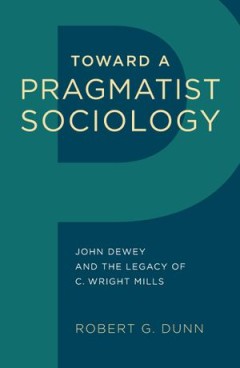
Toward a Pragmatist Sociology: John Dewey and the Legacy of C. Wright Mills
In Toward a Pragmatist Sociology, Robert Dunn explores the relationship between the ideas and principles of philosopher and educator John Dewey and sociologist C. Wright Mills to provide a philosophical and theoretical foundation for the development of a critical and public sociology. Dunn recovers an intellectual and conceptual framework for transforming sociology into a more substantive, comp…
- Edition
- -
- ISBN/ISSN
- 9781439914595
- Collation
- -
- Series Title
- -
- Call Number
- 300 DUN t
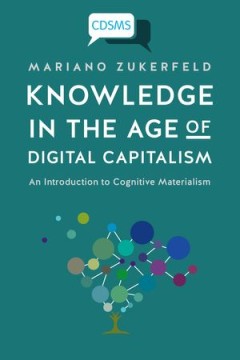
Knowledge in The Age of Digital Capitalism An introduction To Cognitive Mate…
Knowledge in the Age of Digital Capitalism proposes a new critical theory concerning the functioning of capitalism and how we consider knowledge and information. This ambitious book systematically and lucidly introduces contemporary phenomena into the framework of cognitive materialism to address some of the great themes of the social sciences: knowledge, exploitation and social class in an acc…
- Edition
- -
- ISBN/ISSN
- 9781911534242
- Collation
- -
- Series Title
- -
- Call Number
- -
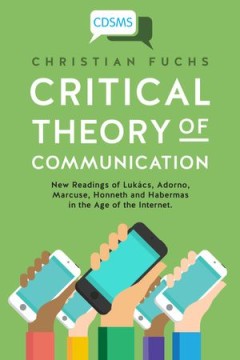
Critical Theory of Communication New Readings of Lukács, Adorno, Marcuse, H…
"This book contributes to the foundations of a critical theory of communication as shaped by the forces of digital capitalism. One of the world's leading theorists of digital media Professor Christian Fuchs explores how the thought of some of the Frankfurt School’s key thinkers can be deployed for critically understanding media in the age of the Internet. Five essays that form the heart of th…
- Edition
- -
- ISBN/ISSN
- 9781911534044
- Collation
- -
- Series Title
- -
- Call Number
- -

Destination London
London is one of the world’s most popular destinations and visitors contribute approximately £14.9 billion of expenditure to the city every year. Its tourism and events sectors are growing and over the last few years London has received more visitors than ever before. However, detailed accounts of the city’s visitor economy are conspicuously absent. This book analyses how the capital is de…
- Edition
- -
- ISBN/ISSN
- 9781912656271
- Collation
- -
- Series Title
- -
- Call Number
- -
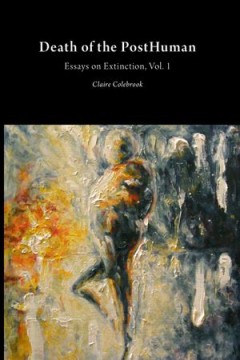
Death of the PostHuman
Death of the PostHuman undertakes a series of critical encounters with the legacy of what had come to be known as 'theory,' and its contemporary supposedly post-human aftermath. There can be no redemptive post-human future in which the myopia and anthropocentrism of the species finds an exit and manages to emerge with ecology and life. At the same time, what has come to be known as the human - …
- Edition
- -
- ISBN/ISSN
- 9781607852995
- Collation
- -
- Series Title
- -
- Call Number
- -
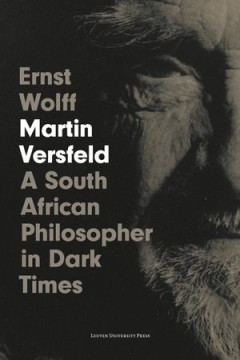
Martin Versfeld A South African Philosopher in Dark Times
Martin Versfeld (1909–1995) is one of South Africa’s greatest philosophers, appreciated by academics and activists, poets and the broader public. His masterful prose spans the tension between disquiet and joy. Detractor of the violent trends of modernity, a critic of apartheid from the first hour, he was among the first philosophers of ecology. At the same time he celebrated the generosity …
- Edition
- -
- ISBN/ISSN
- 9789461664143
- Collation
- -
- Series Title
- -
- Call Number
- -

Providing orbit information with predetermined bounded accuracy
The exchange of orbit information is becoming more important in view of the increasing population of objects in space as well as the increase in parties involved in space operations. The aim of this thesis was to investigate how orbit information maintained by a space surveillance system can be provided to its users. Services like collision avoidance require very accurate information, while oth…
- Edition
- -
- ISBN/ISSN
- 9783832544058
- Collation
- -
- Series Title
- -
- Call Number
- -

In Praise of Asclepius Aelius Aristides, Selected Prose Hymns
In the second century AD Aelius Aristides wrote eight prose hymns to Greek gods. This volume presents a new edition of the Greek text of four of these hymns (focusing on Asclepius), a new English translation with notes, and a number of essays shedding additional light on these texts from various perspectives.
- Edition
- -
- ISBN/ISSN
- 9783161536595
- Collation
- -
- Series Title
- -
- Call Number
- -
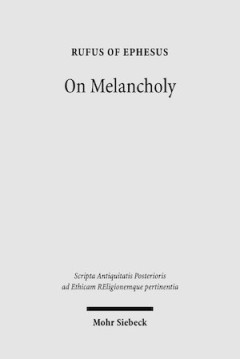
On Melancholy Rufus of Ephesus
Rufus of Ephesus' (fl. ca. AD 100) On Melancholy deals with a medical condition oscillating between madness, depression, and bouts of great creativity. This collection of the Greek, Latin, and Arabic fragments makes this text easily available for the first time.
- Edition
- -
- ISBN/ISSN
- 9783161497605
- Collation
- -
- Series Title
- -
- Call Number
- -
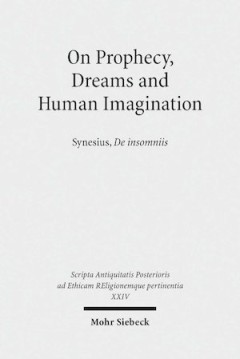
On Prophecy, Dreams and Human Imagination Synesius, De insommniis
Synesius' essay De insomniis ('On Dreams') inquires into the meaning and importance of dreams for human beings and treats themes - most of all the relationship of humans to higher spheres -, which for religiously- and philosophically-minded people are still important today.
- Edition
- -
- ISBN/ISSN
- 9783161524196
- Collation
- -
- Series Title
- -
- Call Number
- -
 Computer Science, Information & General Works
Computer Science, Information & General Works  Philosophy & Psychology
Philosophy & Psychology  Religion
Religion  Social Sciences
Social Sciences  Language
Language  Pure Science
Pure Science  Applied Sciences
Applied Sciences  Art & Recreation
Art & Recreation  Literature
Literature  History & Geography
History & Geography